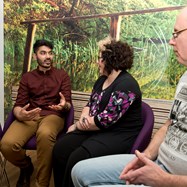Grant letter and research allocations
04 March 2016
Commenting on the HEFCE grant letter and research funding allocations Dr Wendy Piatt, Director-General of the Russell Group, said:
“Outstanding, internationally-competitive teaching and research requires proper levels of investment. Maintaining the science and research budget in real terms is a positive step from the Government. We also welcome the clear recognition of the importance of the dual funding system for research. We urge the government to ensure this dual support is maintained, for the long-term, when changes to the Research and Funding Councils are made.
“It is important that the Global Challenges Fund makes the most of excellent UK research so that it can have the most impact on developing nations. We know that Government investment in HEIF results in a six-fold return and it is greater when focused on the most research-intensive universities, so it is encouraging that this fund will be maintained.
“We will examine the details of the proposed review of teaching funding allocation but appreciate the Government’s recognition of properly funding high-cost STEM subjects with the overall budget for these increasing in real terms. However, the benefits of this will soon be eroded if more students take them up leading to cuts per student. These subjects are currently underfunded and our universities already make a loss on some STEM courses. Equally, it is important that STEM teaching capital supports high quality provision, not just growth.
“Our universities continue to invest millions of pounds to ensure their doors are wide open to talented students from any background. Real progress has been made and many of our universities have taken a proactive role in supporting new academies, free schools and UTCs, with more than 20 schools already open. However, we need to be persuaded that proposals aimed at improving access actually facilitate this progress.
“While we always seek new ways to improve our teaching we continue to have some concerns about how the TEF can add value and assess teaching fairly and accurately without adding to the regulatory burden. More metrics on contact hours may not be the answer. Many senior lecturers operate an ‘open door’ policy where students can get help and advice outside lectures or tutorials. Metrics may not fully capture this kind of support, yet it is valued by students. Not all university disciplines require the same teaching methods. Some subjects, for example Medicine, require a high number of contact hours, but the same approach simply wouldn’t be appropriate for students in many arts and humanities subjects."
Notes to editors:
- The Russell Group’s full response to the HE Green Paper can be found here.
- Our response to the Nurse Review is available here.
- The 2015 National Student Survey showed:
- 88% of students are satisfied with the quality of their university course across Russell Group universities, compared with 85% of students at other universities.
- 89% of students at Russell Group universities are satisfied with the teaching on their course, compared to a sector-wide average of 87%.
- 90% of students at Russell Group universities found their course intellectually stimulating.
-
Hamir Patel
hamir.patel@russellgroup.ac.uk
020 3816 1316
-
Stephanie Smith
020 3816 1310
 X
X


